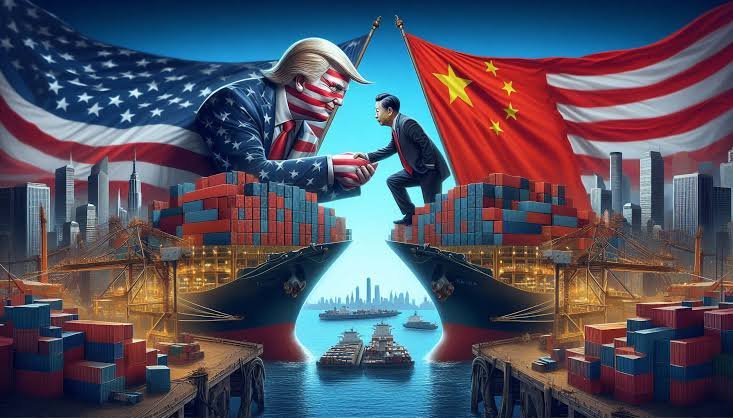The escalating tariff conflict between the United States and China is proving to be a costly misstep with global consequences. While intended to pressure China, the trade war is inflicting significant economic damage on both sides—particularly on American consumers—and exposing vulnerabilities in global supply chains.
With US tariffs on Chinese goods now at 145 percent, the average American household faces rising prices on everyday essentials like electronics, clothing, and household items. The hardest hit are low-income families already burdened by inflation. Meanwhile, China has retaliated with its own tariffs and has added American companies to its export control lists.
Economists warn that prolonged trade tensions could tip the US economy into recession, creating political risks ahead of the 2026 midterm elections. All seats in the House of Representatives, one-third of the Senate, and numerous state offices are up for grabs—making the economic mood a key factor for voters.
While China diversifies its trade partnerships through initiatives like the Belt and Road, and relies on a large domestic market for stability, the US struggles to find alternatives to Chinese manufacturing. Disruptions to American businesses dependent on Chinese supply chains could result in job losses and weakened global competitiveness.
For African economies like The Gambia, this conflict serves as a cautionary tale. A dip in Chinese demand for raw materials and unstable commodity prices may threaten exporters across the continent. However, it also presents a crucial opportunity.
To safeguard against future global shocks, African nations are urged to:
Expand intra-African trade through full implementation of the African Continental Free Trade Area (AfCFTA).
Prioritize agricultural self-reliance to reduce dependence on imports.
Invest in domestic manufacturing to create jobs and fortify local industries.
Rather than weakening China, the tariff war is backfiring on the US, damaging its economy and international credibility. For Africa, the lesson is clear: sustainable development must begin at home. Now is the time to reduce external dependence and chart a path toward true economic independence.



